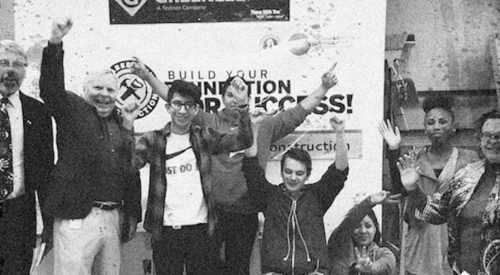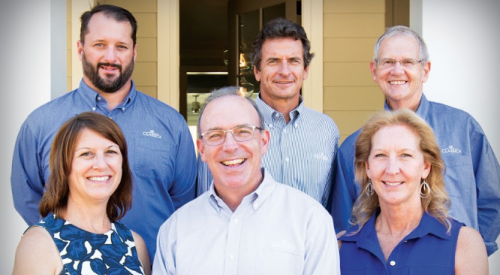| Dean Horowitz, Publisher |
If you do not continue to grow in your role, if the people you work with don’t grow, and if your organization doesn’t improve at a fast enough pace, you fall further and further behind those that do. It sounds harsh, but you will no longer need to exist in that organization or as an organization.
This thought process isn’t new to me. I have been pretty driven my whole life. But the thing that really got to me recently was associating ranking and grading terms for a slide in an upcoming PowerPoint presentation I am giving.
The first vertical column in the spreadsheet has the traditional school rankings of A, B, C, D and F. You want the A, your parents want you to get the A, but really the B still feels pretty good. B is above average, and that means ahead of the pack. C is OK for the class such as a foreign language you just don’t get or the mathematics class that teaches concepts you will never use again. You just have to be careful with C’s because too many will take you out of the running for a decent college. I’m not saying you have to go to college, but you want to make sure all options are available.
The second vertical column uses terms from horse racing: Win, Place and Show. All three aren’t just ahead of the other horses, they are in the money. As a result, Win is in line with A-plus, Place is in line with A, and Show is in line with A-minus. All three are ahead of the B’s.
The third vertical column is based on the Olympics. Gold equals A-plus, Silver equals A, and Bronze equals A-minus. There usually are only small degrees of difference in the performances of Olympic medal winners.
The fourth vertical column is related to the National Housing Quality Awards judging charts. A Level 5 performance demonstrates true proficiency, so this level must equal A-plus. A Level 4 performance equals an A, a Level 3 performance equals an A-minus, and Level 2 equals a B. That leaves Level 1 associated with a C.
The chart uses more examples, but they all just reinforce that the real world demands the best out of all of us. It isn’t just our boss with the “unrealistic” expectations. It is one of the truths we must deal with in our adult lives. We might have thought we no longer had to worry about grades as key determinants of our futures, but now grades affect our eligibility for compensation increases.
When you buy a newly released compact disc from a favorite musician, you expect the work to be better than the musician’s previous effort. If it isn’t, you probably find something else to listen to. You believe the new Star Wars movie will be better than the last one and at least equal to the first ones. You demand that a restaurant’s performance be at the same level or better than the last experience. If it isn’t, there are other restaurants to try.
In reality, you demand that every experience be better than the one before because the last one set your expectation.
In this issue, Professional Builder focuses on the 101 Best Companies to Work For in the Residential Construction Industry. Companies that made the list did so because of the Level 5 experiences had by their internal customers — their employees. These companies likely will be winners in our inaugural Customer Satisfaction Awards program, too.
BusinessWeek magazine recently published its 2002 list of 100 Hot Growth Companies. Reporting on the status of the Class of 2000, BusinessWeek said 59 are now “stock market losers,” and 10 have gone through a merger or an acquisition. That means only 31 are still performing two years later.
“Improve or die” might be only the painful realization of a reality that always has been there for us.











